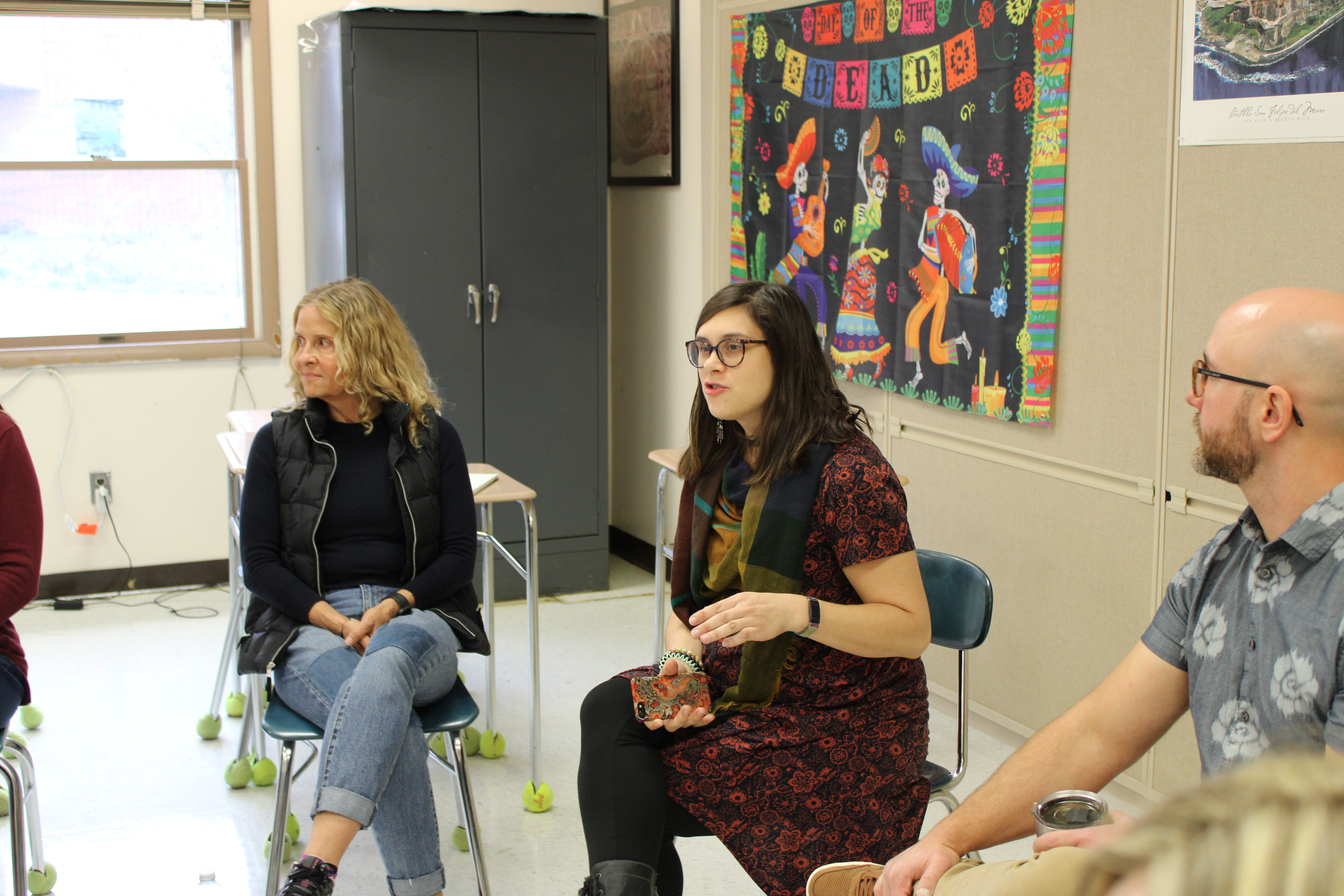-

New Paltz Central School District Implements Restorative Practices in Collaboration with Ulster County, Family of Woodstock
NEW PALTZ–The New Paltz Central School District (NPCSD) is pleased to announce that Maria Scarangella, Assistant Program Director of Family of Woodstock’s Restorative Justice and Juvenile Justice Services, is working with the District to facilitate restorative discipline practices that aim to prevent conflict, create a sense of community in the classroom, and encourage students to accept responsibility and repair relationships. Scarangella’s work is being funded by Ulster County.
NPCSD is joining several other school districts in Ulster County, including Ellenville, Saugerties, Kingston, and Wallkill, who have worked with restorative practices coordinators as a result of the county funding.
According to Scarangella, restorative practice is a philosophy and set of practices that work to proactively build and sustain healthy relationships, such as mediation or classroom/community circles. She said that the emphasis on relationships includes conflict prevention and constructive resolution. “I like to define restorative practices as a ‘way of being’ that includes how we talk to each other, treat one another, and the processes that are used when things go wrong or there are important conversations that need to be had,” she explained.
NPCSD Deputy Superintendent Linda Oehler-Marx emphasizes that the purpose of discipline in a school setting, wherever possible, is to help the student learn from their mistakes. “We strive for students to develop self-control and self-regulation in order to make choices that enhance–not harm–their communities, and to take responsibility for their actions,” she explained.
According to Oehler-Marx, the District has used an approach based on these principles–called ‘The Responsive Classroom’–in the elementary schools for many years. “Implementing restorative practices from preschool through Grade 12 allows for a consistent continuum that is aligned to our District’s vision and mission,” she explained. She also said that this work is helping the District focus on being more proactive in mediating conflicts between students before they escalate.
Scarangella is working four days a week in the District to roll out the initiative in two phases. First, the practices will be introduced to staff, allowing for the opportunity for input, questions, agreements, and disagreements. A Restorative Leadership Team will be formed to help model the work and provide workshops for students, families, and community stakeholders.
Next, Scarangella will visit each classroom and model/co-facilitate circles. She will continually train staff, as well as evaluate the Code of Conduct to ensure that policy and practices align. Teacher aides have already been trained in restorative chat practices, and Scarangella will soon be training school social workers and counselors.
Scarangella, who has extensive experience working with faculty, staff, and students, is well-equipped for this work. She possesses a master’s degree in Social Work from the University at Albany and is a Fellow at Georgetown University’s Center for Juvenile Justice Reform, where she also received a graduate certificate in School-Justice Partnerships and Diversion Pathways. She is a licensed trainer of Restorative Practices through the International Institute of Restorative Practices, and has served as Assistant to the Executive Director and as a volunteer “circle keeper” in the Newburgh Model at The Restorative Center in Newburgh. She is also a practitioner on the local Mobile Mental Health Crisis team and is trained in de-escalation techniques and critical stress incident management.
The success of the program will be measured by examining overall discipline outcomes and proportionality in discipline actions, as well as through climate/culture surveys of students.
The restorative practices program has already proved successful in other districts. Grade 6 teacher Joseph Tiano from Saugerties Central School District says that Scarangella’s work has had a positive impact throughout the entire grade level. “The sixth-grade team at Riccardi Elementary School feels that restorative practice is vital to the success of the social, emotional, and educational well-being of our students,” he said. “Student emotions and behaviors have changed post-COVID-19. This practice was a tremendous help when implemented and we saw student incidences plummet. Student empathy for one another was raised, and students, as well as adults, knew each other much better.”
Select a School...

